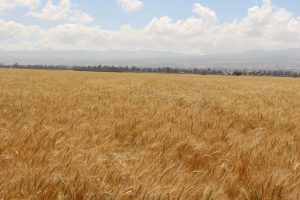A presentation on "The state and contribution of extension services to agricultural productivity in Ethiopia" was given by Guush Berhane of IFPRI-ESSP (co-authored by Catherine Ragasa of IFPRI, Gashaw T. Abate of IFPRI, and Thomas W. Assefa of University of Georgia) at the Ethiopian Development Research Institute (EDRI) on March 30, 2018. The study document the state of the extension system in Ethiopia and analyze the links between key extension services provided, adoption of modern inputs, and agricultural productivity using a unique and large panel dataset covering the most important agricultural potential zones in Ethiopia. The study provide first hand evidence of the direct (through conveying new knowledge) and indirect (through promoting modern input uses) effects of extension services on productivity. The key results from Correlated Random Effects models show that access to the extension system increases adoption of modern inputs mainly chemical fertilizers, improved seeds, herbicides, and irrigation. However, agricultural extension does not directly increase productivity levels other than it does indirectly through its effects on increased adoption of those modern inputs. Use of modern inputs including fertilizers, improved seeds, irrigation and row-planting contribute to productivity increases. These results are consistent across several indicators for extension advisory services directly provided by the extension agent as well as those provided through farmer-to-farmer interactions. These results are also consistent with recent evidence suggesting that agricultural productivity increases in Ethiopia are associated with increased use of inputs mainly expansion in cultivated area of land and use of chemical fertilizers. Adoption of such fundamental inputs has been crucial for productivity increases so far as Ethiopia’s agriculture production system starts from rather low base. Indeed, the study's findings strongly suggest that agricultural productivity increase in Ethiopia is not yet knowledge driven and that achieving further productivity increases would be increasingly difficult without additional investments to improving the quality (and not just the quantity) of the extension system, particularly given the dwindling access to additional cultivable land and other resources due to increasing population pressure. Further gains in agricultural productivity would thus have to come through significant improvements to the existing input supply-led extension system towards a more knowledge-driven and problem-solving system. Full details of this presentation can be found here.
This presentation was organized by ESSP and EDRI. ESSP is a collaborative program undertaken by IFPRI and EDRI, whose objective is to help improve the policy-making decision process in Ethiopia.
Please subscribe to receive regular updates on ESSP’s work and its quarterly newsletter.
Keep updated with cutting edge research from Ethiopia.
